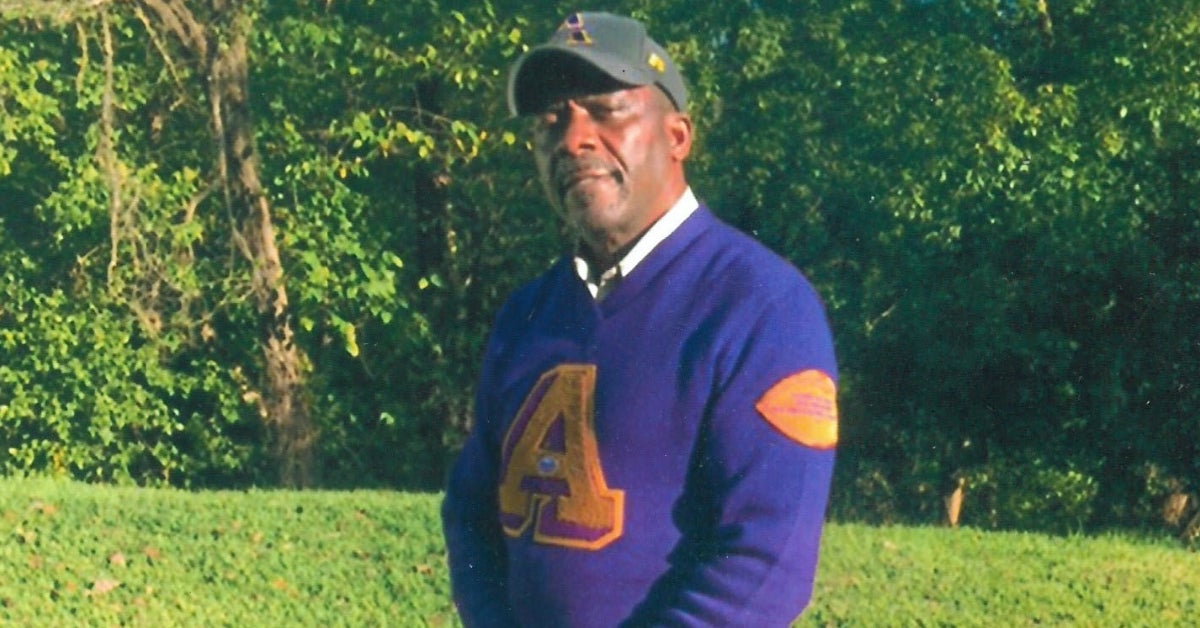Young releases memoir on 1950s Vicksburg, Alcorn and NFL career
Published 8:00 am Friday, August 25, 2023

- Ernest Young
By Ian Omar Smart | Guest Contributor
Vicksburg native Ernest Young is a father, husband, and, now, a 70-year-old author.
In his book, “Love, Patience and Admiration Heals All Wounds,” he chronicles his life growing up in 1950s Vicksburg, attending Alcorn State University, and his professional football career. His story is embedded in the culture, history and character of Vicksburg.
There are many mentions of leadership throughout the book. How did mentor-ship impact how you currently relate to young people?
YOUNG: Leaders showed me the right way to be. My father was the first. His discipline in our home impacted the way I dealt with people, and it impacted the way I behaved as a disciplinarian with folks I was responsible for leading. That accountability extended to the community and the activities they put on for us. It was a great outlet for kids to have fun without them getting into any trouble.
One of the most notable portions of the book involved your mother and how her death impacted you. Tell about how she has stayed with you.
YOUNG: My sister called me to tell me our mother had passed away. I just couldn’t get over losing my mother. It bothered me so much that I ended up leaving campus to live with my brother in Gary, Indiana.
One morning, I woke up and smelled my mother’s scent. And in my dreams, she would tell me to go back to school. In the meantime, I had done many small jobs that I hated, one after the other. But every night, my mother would come back to me telling me I was better than the work I was doing.
One night, I drove back to Alcorn and asked to be back on the team. Coach told me, “I don’t have a spot for losers.” Even with that comment, he told me to come back the next day at noon. When I arrived, they gave me the worst pads they had. The coach also had me going through trials every day. Eighty-one players, knocking me down, hitting me and kicking me, but I kept fighting, kept trying. They couldn’t kill my spirit, and eventually, they put me back on the team.
That year, I was voted most valuable player for five games. During that year, My mother told me, “Job well done, son. I knew you could do it. See you later.” She left, and I haven’t seen her since. Maybe she’s waiting for me to meet her when my time comes.
The confidence your parents instilled in you also built your resiliency, especially when playing for the NFL.
YOUNG: Mama and Daddy’s work ethic came through in all of their children. That effort helped me succeed in playing pro ball. Most notably, I once got a call from an NFL Hall of Famer who was working with the Birmingham Stallions. He had called Eddie Robinson from Grambling College looking for a Defensive Back, he said to call me. I went up to Mississippi Valley State to run drills with Jerry Rice and Willie Totten. During those drills, I shut them both down, and right after, I got an offer to play. We became division champs that year.
I loved this quote from your book, “We always say what we will do with our blessings, but it’s hard to follow through.”
YOUNG: People pray for their blessings, but once they get close to achieving them, they want to shift in a different direction. You must stay the course and deal with things as they come. Now, we’re all human. We make mistakes and can get pulled into a dark corner, but there’s always a way out of that. I’m 70 going on 71. I know so much more now than I had in the past, but that’s what aging gives you.
What did you learn from losing as a coach versus losing as a player?
YOUNG: When I started coaching at Alcorn State University, we lost all of our games, and it was getting tough for all of us. But after every loss, the head coach only highlighted what his team did well. After that, I got the opportunity to be a head coach for a high school. Losing those college games taught me what a real win in life was. I helped kids go to college who never thought that was an option.
So the book ends with a poem about family. Why end your book with a poem about family?
YOUNG: I love my family so much, that I wanted to write something that’d express that love. The poem was about how much our family loved and enjoyed each other. Every family fights, but we also need each other.





